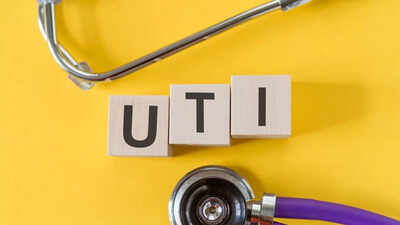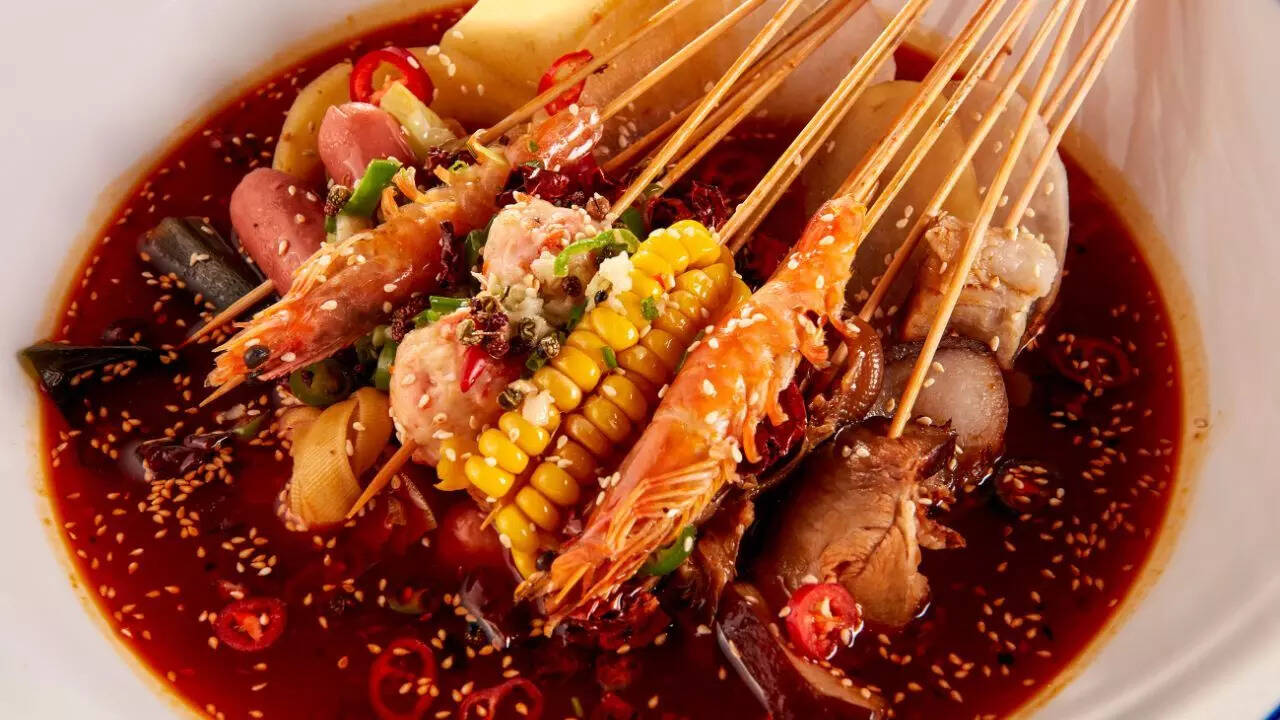ARTICLE AD BOX

If you’re dealing with the discomfort of a urinary tract infection (UTI), what you eat and drink can play a role in how your symptoms feel. While antibiotics remain the primary treatment for UTIs, certain foods and beverages can irritate the bladder, increasing the urgency or discomfort of urination.
According to a study published in NIH, spicy, acidic, or caffeinated items, for example, may worsen bladder sensitivity and slow recovery. Being mindful of your diet during this time can help reduce irritation, manage symptoms, and support healing. Here’s a detailed look at the foods and drinks you should limit or avoid while recovering from a UTI.
7 Foods you shouldn’t eat when treating a urinary tract infection (UTI)
Acidic foods
Acidic foods like citrus fruits, tomatoes, and carbonated beverages can irritate the bladder.
The bladder lining protects the muscle from frequent contractions, but during a UTI, this lining becomes more sensitive. Consuming acidic foods can worsen irritation, making urination more uncomfortable. Carbonated drinks such as seltzers, tonic waters, and flavored sparkling waters should also be avoided until the infection clears.
Opting for less acidic alternatives can help reduce bladder sensitivity and ease symptoms during recovery.

Spicy foods
Spicy foods such as hot peppers, salsas, curries, and hot sauces contain capsaicin, which can irritate the bladder in sensitive individuals. This may increase the urge to urinate and intensify discomfort. Avoiding spicy dishes during a UTI can help minimise bladder irritation, while milder meals are less likely to trigger symptoms. Steering clear of heavily spiced foods can reduce urinary frequency and make recovery more comfortable.
Caffeine

Caffeinated beverages and foods such as coffee, tea, caffeinated sodas, and chocolate can stimulate the bladder and increase urinary urgency. During a UTI, consuming caffeine can lead to more frequent trips to the bathroom and worsen bladder discomfort. Reducing or eliminating caffeine intake until the infection resolves can help manage symptoms and support a smoother recovery.
Alcohol

Alcohol is a diuretic, which increases urine production and can further irritate an already sensitive bladder.
Consuming alcohol during a UTI can worsen urinary frequency and discomfort. It may also interfere with antibiotics used to treat the infection. Avoiding wine, beer, and spirits while recovering can help prevent symptom flare-ups and ensure treatment is effective.
Sugary foods and drinks
Sugary foods and drinks, including soda, sweetened teas, juices, desserts, and candy, can stimulate the bladder and increase urination. Sugar also serves as a fuel source for bacteria, potentially allowing the infection to persist.
High sugar intake can increase urine acidity and reduce immune response, which may slow recovery. While limiting sugar is important, berries can be a good alternative, as compounds like anthocyanins and resveratrol offer anti-inflammatory benefits that may support bladder health.
High-sodium foods

High-sodium foods such as processed snacks, pizza, sandwiches, soups, condiments, bread, and some desserts can activate the nervous system and make the bladder more hyperactive.
Excess sodium may increase urinary frequency and urge, worsening symptoms during a UTI. Reducing salt intake while the bladder is irritated can help ease urinary discomfort and support overall urinary health, particularly for individuals prone to bladder sensitivity or overactive bladder symptoms.
Cured and processed meats
Cured and processed meats often contain nitrates, which can irritate the bladder during a UTI. It’s best to avoid these products while recovering from infection.
Instead, choose fresh proteins like chicken, fish, and lean cuts of red meat, or select uncured, nitrate-free options clearly labelled on packaging. These alternatives provide essential protein without bladder-irritating preservatives, supporting comfort and healing during treatment.Managing a UTI involves more than just antibiotics, your diet can significantly impact bladder comfort and recovery. Avoiding acidic, spicy, caffeinated, alcoholic, sugary, high-sodium, and processed foods can reduce irritation, ease urinary symptoms, and support healing.
Mindful dietary choices help make recovery faster and more comfortable.Disclaimer: This article is for general informational purposes only and is not a substitute for professional medical advice, diagnosis, or treatment. Always seek the guidance of a qualified healthcare provider regarding any medical condition or lifestyle change.Also Read: 7 Side effects of eating raw onions you must know



.png)
.png)
.png)
















 8 hours ago
2
8 hours ago
2









 English (US) ·
English (US) ·